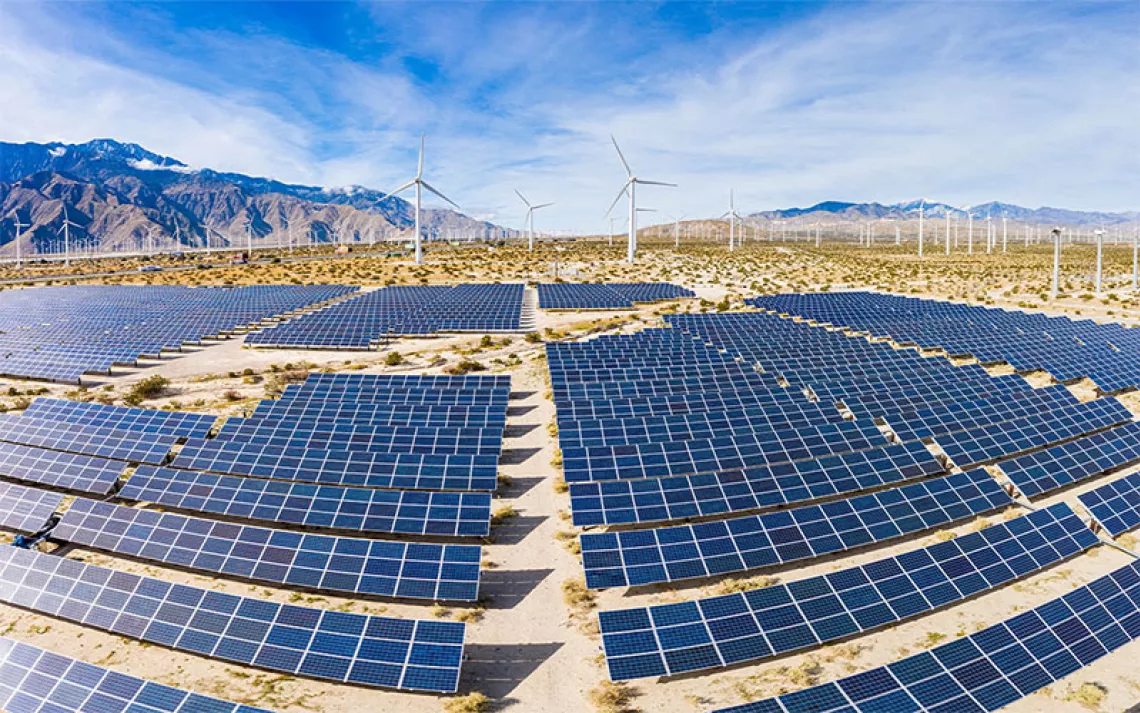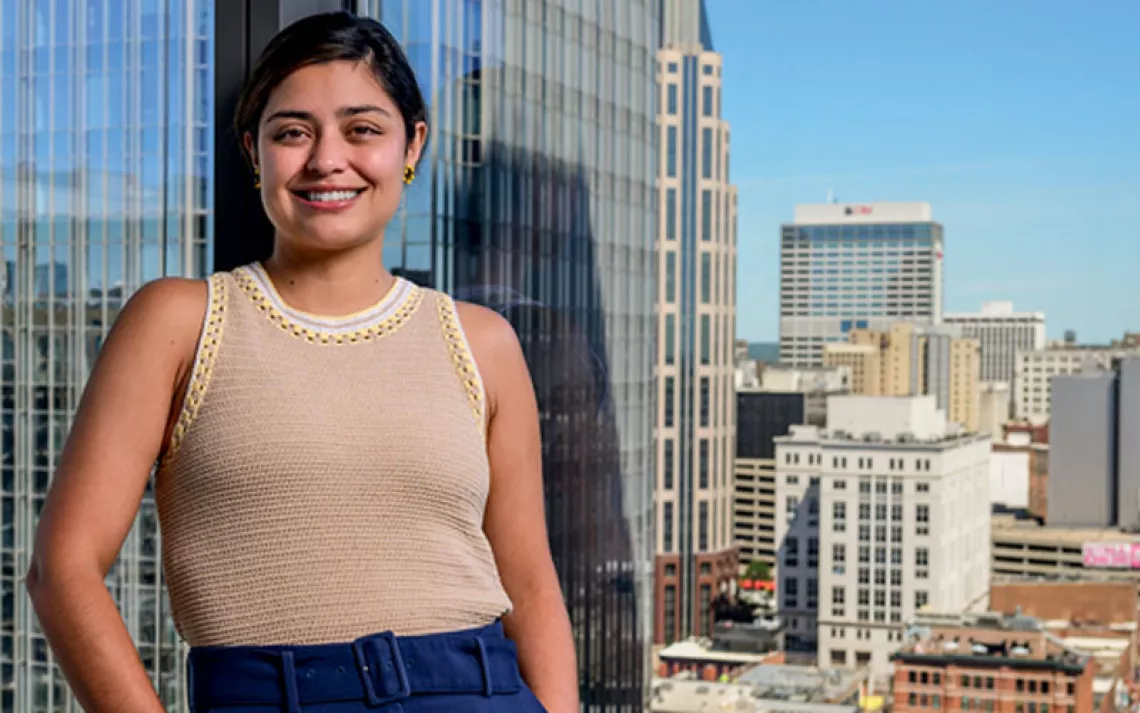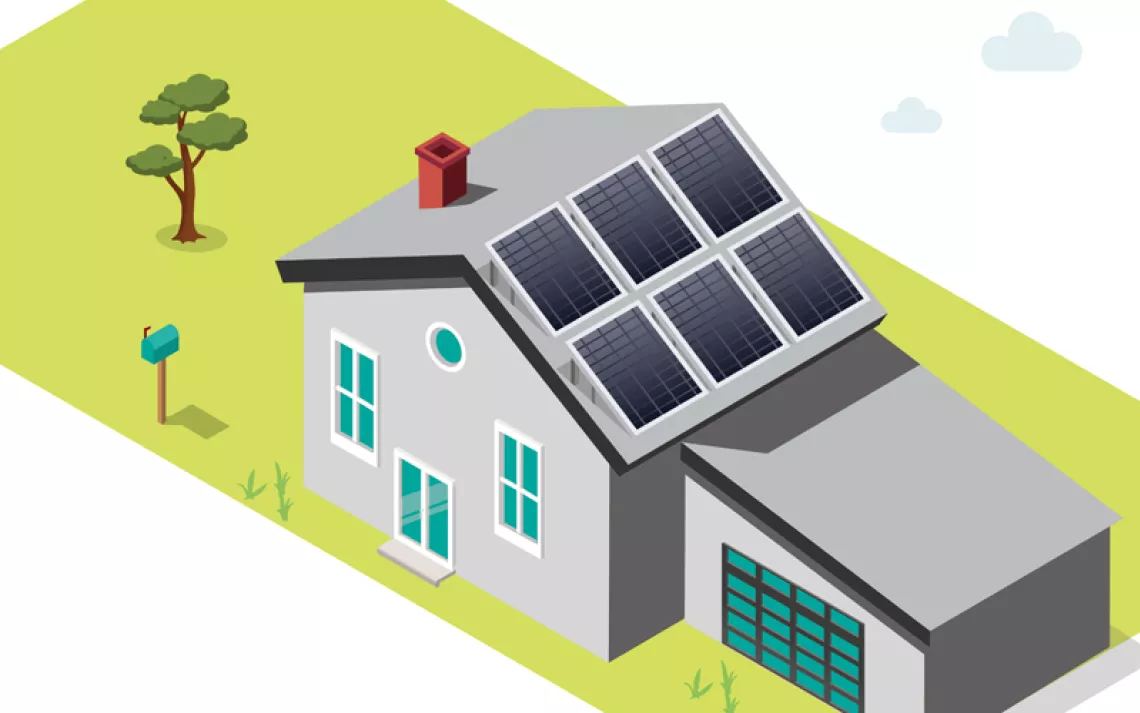Power Forward
Every day, the clean energy revolution is creating new jobs for American workers. As part of an ongoing series, Sierra asked one of them to tell us his story.

Mark Davis, CEO of WDC Solar, Washington, D.C. | Photo by Jonathan Timmes
I was born in Alapaha, a little town in south Georgia. I played basketball at the county high school and was pretty good—I'm 6'8". I got a chance to go to Temple University, where I played. And from there I came to D.C., signed by the Bullets. I got cut. I went back to school. I came back and signed again with the Bullets. Then I signed with Chicago, and then got cut there, and spent three years playing in Europe—Switzerland and Belgium. I got the chance to speak a little French and learn a lot about food and wine.
I came back to D.C. and started my own title company, which I still run. Then, about five years ago, I started the solar business. I bought into everything when President Barack Obama was running, and took classes, got certified, and created the business. The idea is to train people in the community to install solar panels, and then to actually install panels on low-income-family homes at no cost to the residents. We also want to install bigger projects, megawatt-scale, on government and commercial buildings. Every day I'm doing something different, which is one of the things I like about it.
Anacostia is across the river from Capitol Hill. It's been long denied the economic development the rest of the city has had. We have the highest high school dropout rate in D.C. The crime rate here is higher than in the rest of the city.
In 2012 we were part of a program that installed 82 systems at no cost to the residents. In 2013 we did about 30. When I first started, I was the only solar installer in the District of Columbia. Now there's a half dozen or so. It's growing, it's getting more competitive, and you have to be good.
We've trained close to 50 people. On my last count, about 7 are working in solar. Jobs in the field are just hard to find. It all depends on how aggressive you are. We give you the tools, and then you have to get out there and make it happen.
In Anacostia we have community workshops where residents come out and we explain how solar works. Very few people buy in from the environmental perspective. Most people want to see the money. We let them know that solar will save them money every single month on their electric bill, and that's for the next 20 to 25 years. They see a positive cash flow, and that money goes right back into the community, to food for the family, medicine, education, whatever. I've heard a lot of people say what they were going to do with that $45 or $50 that goes right back into their pockets.
Our customers pay for their systems through tax credits, SRECs [Solar Renewable Energy Certificates], and private funds. They own the system from day one, and they make money every single month. But to get into one of these programs, you have to have good credit.
One of my best moments was convincing D.C. Sustainable Energy Utility to start a low-income program. That really helped a lot of people. To date, the utility has funded 150 to 200 homes under the program. It was also gratifying to see a guy from Barry Farm public housing with not a lot of hope come into our training program, get trained, and get a very good job. If he holds on to his job, he is on his way out of Barry Farm. He can make it. To have just one or two of those guys do that, it's all worthwhile.
One of the low points is that it takes so long to get some of the large contracts we want. A two- or three-megawatt deal can take you eight or nine months before you get all the paperwork signed. And then the deal falls through. You have to really be prepared for that.
Basketball prepared me for everything. You go your full season a lot of times and get to the play-offs and anything can happen. You've got to be prepared for that, go back, figure out what you did wrong, and try again. You always have to keep that mentality that you might lose a battle here or there, but you don't lose the war. You've got to keep fighting.
 The Magazine of The Sierra Club
The Magazine of The Sierra Club



